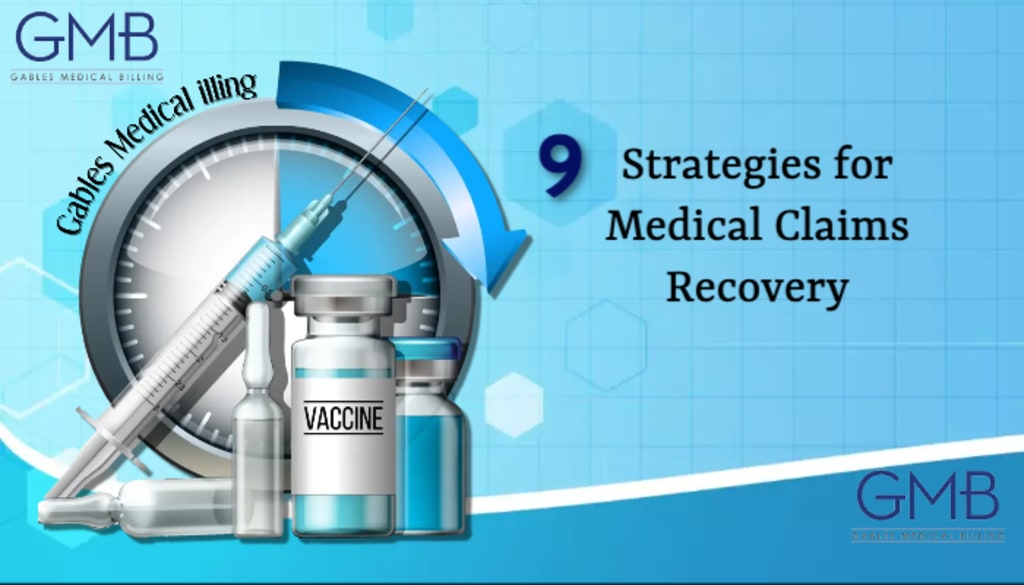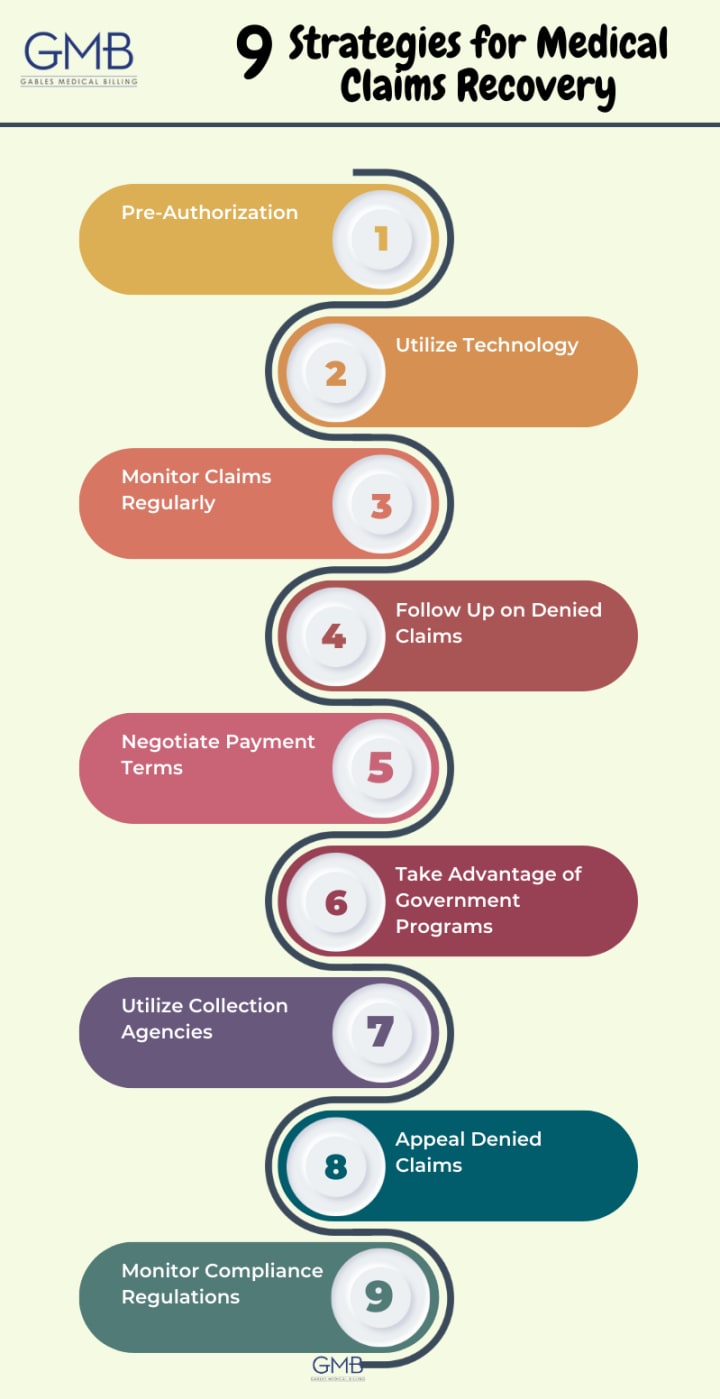9 Strategies for Medical Claims Recovery
Gables Medical Billing

Medical claims recovery is an invaluable tool for healthcare providers. It can help them to recoup lost revenue due to rejected or denied claims, minimize the risk of nonpayment, and maximize the return on their services. But as with any business endeavor, there are certain strategies to follow in order to maximize success.
Here are 9 strategies for medical claims recovery that can help you get the most out of your services.

1. Pre-Authorization
One of the most important steps in medical claims recovery is pre-authorization. This is the process of obtaining approval from the patient’s insurance carrier prior to providing services. It helps to ensure that the services provided are covered by the patient’s policy and that the healthcare provider will be reimbursed for the services. Pre-authorization also helps to reduce the risk of nonpayment, as the insurance company has already agreed to cover the service.
2. Utilize Technology
Technology can be a powerful tool in medical claims recovery. Automated software can help to streamline the claims process, reduce errors, and ensure that all the necessary information is collected and submitted to the insurance carrier accurately and efficiently. This can help to reduce the time and effort required to submit claims and increase the likelihood of a successful recovery.
3. Monitor Claims Regularly
It is important to monitor claims regularly to ensure that they are being processed in a timely manner. This can help to identify any potential issues or delays and allow healthcare providers to take appropriate action. It can also help to identify any errors or omissions on the part of the insurance carrier, which can then be corrected and submitted again.
4. Follow Up on Denied Claims
When a claim is denied, it is important to follow up with the insurance carrier to find out why it was denied and to ensure that the denial was valid. It is also important to review the claim to ensure that all the necessary information was included and that it was submitted correctly. If the denial was not valid, it is important to take the necessary steps to resubmit the claim.
5. Negotiate Payment Terms
Many insurance carriers will be willing to negotiate payment terms for certain services. This can be a great way to recoup lost revenue due to denied or rejected claims. Negotiating payment terms can also help to ensure that the healthcare provider is reimbursed for the services provided in a timely manner.
6. Take Advantage of Government Programs
Many government programs are available to help healthcare providers recover lost revenue due to denied or rejected claims. These programs can provide financial assistance, payment guarantees, and access to alternative payment options. It is important to take advantage of these programs in order to maximize recovery and minimize the risk of nonpayment.
7. Utilize Collection Agencies
Collection agencies can be a valuable resource in medical claims recovery. They can help to locate and contact patients who have not paid for services or who are delinquent on their payments. Collection agencies can also help to negotiate payment arrangements and take legal action if necessary.
8. Appeal Denied Claims
If a claim is denied, it is important to appeal the decision. This can be done by submitting a written appeal to the insurance carrier and providing additional documentation to support the claim. It is important to thoroughly review the appeal before submitting it in order to ensure that all the necessary information is included.
9. Monitor Compliance Regulations
It is important to stay up-to-date on all applicable compliance regulations in order to ensure that all claims are submitted in accordance with these regulations. This can help to reduce the risk of nonpayment and ensure that the healthcare provider is in compliance with all applicable laws and regulations.
Gain Insights Into Strategies for Medical Claims Recovery
Medical claims recovery can be a complex process, but with the right strategies in place, it can be a powerful tool for recouping lost revenue and maximizing the return on services provided. By following the strategies outlined above, healthcare providers can ensure that they are getting the most out of their services and minimizing the risk of nonpayment.
About the Creator
Gables Medical Billing
Gables Medical Billing has adapted to the ever-changing medical billing environment, modifying and adding to its services to proactively meet,.






Comments
There are no comments for this story
Be the first to respond and start the conversation.